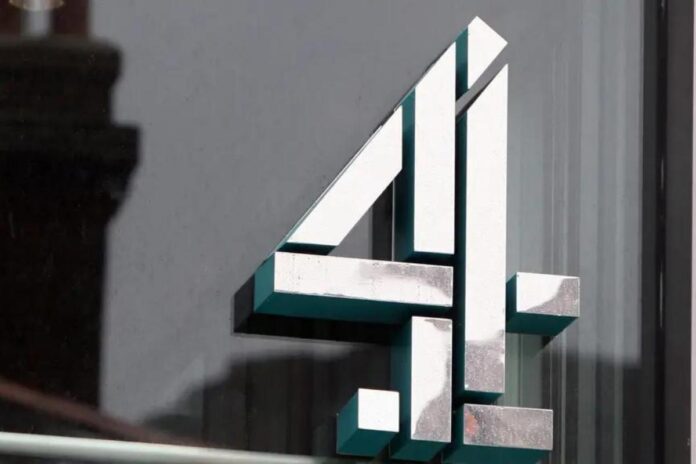Channel 4 is being pushed to get privatised by culture Secretary Nadine Dorries, with the government backing proposals to sell off the broadcaster after 40 years in public ownership.
The government hopes to privatise the channel for £1billion making it one of the biggest privatisations since Royal Mail which went public a decade ago. The ministers suggested that they could spend the proceeds to boost creative training and can essentially fund the levelling up agenda of independent production companies.
These plans were met by a very fierce reaction from the media industry, with prominent broadcasters suggesting that the government was trying to pursue an agenda of “ Shortsighted political and financial attacks” on British public service broadcasters.
In an email on Monday night, Alex Mahon, who is channel 4’s chief executive told the staff of the news that they have been informed in the last hour that the government will shortly announce that the secretary of state has decided to proceed with the proposal to privatise Channel 4.
“In our engagement with the government during its extended period of reflection, we proposed a vision for the next 40 years which we are confident would allow us to build on the success of the previous 40 years. The vision was rooted in public ownership and was built upon the huge amount of public value this model has delivered to date and the opportunity to deliver so much more in the future.”
Chief executive Alex Mahon hinted that Channel 4’s current leadership would not go down without a fight, saying that “ultimately the ownership of Channel 4 is for government to propose and parliament to decide,” and that the lengthy process of passing legislation to privatise the channel meant that it was not a done deal.
Dorries tweeted on Monday evening that public ownership was “preventing Channel 4 from competing against streaming behemoths like Netflix and Amazon.” “Channel 4 will have the resources and flexibility to prosper and thrive as a public service broadcaster far into the future,” she continued.
Lucy Powell, the shadow culture secretary, called the decision “cultural vandalism.” “Selling off Channel 4 to what is likely to be a foreign firm, which doesn’t cost the taxpayer a dime anyhow, is cultural vandalism,” she added. It will cost jobs and prospects in the north and Yorkshire, as well as the creative sector in the UK as a whole.”
The station is for profit and airs advertisements, but it reinvests 100% of its proceeds in new programming. Its existing leadership has stated that a new private sector owner will prioritise profit over innovative and distinctly British content.
Dorries claimed in parliament last year that Channel 4 was in “receipt of public money,” which was false. In actuality, the channel receives no public funding, although it does have the power to borrow money from the government in an emergency.
Despite this, the government claims Channel 4 is too tiny to compete with global streaming corporations for programming in the long run. Despite the fact that its own All 4 catchup service has risen in popularity, the broadcaster is still highly reliant on conventional revenue sources such as advertising on live broadcasts.
A streaming service, another British commercial broadcaster such as ITV, or a US media business such as Discovery might all be interested in buying the broadcaster, however they may be turned off by the need to satisfy public service standards such as delivering pricey current affairs content.
Dorries’ decision comes only days after the government named Sir Ian Cheshire, a businessman, as the head of Channel 4 in cooperation with Ofcom, with the intention of privatising the channel. Michael Grade, the recently elected head of Ofcom and a former CEO of Channel 4, is an advocate of privatisation, which might make any regulatory problems simpler to resolve.
Although the government is likely to approve the legislation needed to privatise Channel 4 in the Commons, it may face opposition in the Lords. The potential of a difficult struggle to pass the appropriate law has fueled speculation in recent weeks that the administration might abandon its privatisation ambitions as it prepared for a general election expected in the next two years. Instead, it appears to be banking that it can speed up the sell-off.
Attempts to privatise Channel 4 have been undertaken on a frequent basis throughout its history, but the broadcaster has always managed to maintain its independence.
The latest sell-off proposals were made in the wake of the Conservatives’ 2019 election campaign when the broadcaster’s news arm angered the governing party by replacing Boris johnson with a melting block of ice during a debate about climate change.
“Channel 4 remains legally committed to its unique public-service remit. The focus for the organisation will be on how we can ensure we deliver the remit to both our viewers and the British creative economy across the whole of the UK.
“The proposal to privatise Channel 4 will require a lengthy legislative process and political debate. We will of course continue to engage with DCMS, government and parliament and do everything we can to ensure that Channel 4 continues to play its unique part in Britain’s creative ecology and national life.”













